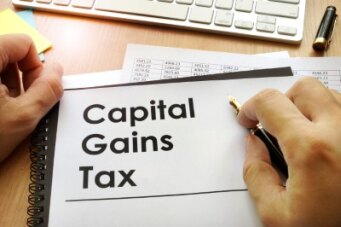Business Asset Disposal Relief (BADR) eligibility

Business Asset Disposal Relief is a valuable relief for business owners who might be looking at significant capital gains when selling all or part of their business.
What exactly is Business Asset Disposal Relief
Business Asset Disposal Relief (also known as BADR) used to be called Entrepreneur’s Relief until the Finance Act 2020. BADR reduces the rate of capital gains tax on disposals of qualifying assets from 20% to 10% and could be worth up to £100,000.
Is BADR only relevant for assets that are sold?
No, BADR also applies to assets which are given away or exchanged for something else. It could also relate to assets that have been lost, stolen or damaged for which you’ve been compensated via an insurance policy. Of course, it also applies to disposals, in full or part, of a business including shares when you are closing a company.
What is the Business Asset Disposal Relief Lifetime Allowance?
There is a £1 million lifetime allowance for BADR. This lifetime allowance fell from £10m in March 2020. Once you have used up the £1 million allowance, CGT will apply at the standard rate (currently 20% correct as at 2023/24 rates).
Can all businesses use BADR?
Business Asset Disposal Relief is only applicable to sole traders, partnerships, joint ventures and trusts. If you have a limited company, you cannot claim BADR. Individuals disposing of investment assets such as shares or property are also ineligible for BADR.
The eligibility criteria are:
- The company or business must be a trading business
- A sole trader/partnership must have been trading for at least two years before closing or selling the business
- Shareholders must have been employees or directors for at least two years before the disposal
You must have held no less than 5% of the total shares and have held those shares for at least 2 years.
What are the rules for shares from an Enterprise Management Incentive (EMI)?
The following conditions must be met for BADR for shares from an EMI:
- Shares must be purchased after 5 April 2013
- Shares must be held for at least 2 years before selling them
- The company is not the individual’s personal company.
How can I claim Business Asset Disposal Relief?
You can use BADR any time you dispose of all or part of a business or shares at the end of ownership. You can do this via your self assessment tax return or by completing section A of the Business Asset Disposal Relief form.
Is there a deadline for claiming BADR?
You must make any claim for BADR by 31st January of the year following the one in which the disposal occurred. E.g. If you disposed of assets on 18th April 2023, you must make your BADR claim by 31st January 2025.
Other scenarios for Business Asset Disposal Relief
There are a few other situations to be aware of when it comes to qualifying assets and eligibility for BADR
Non trading companies
If the company stops being a trading company, you can still get relief if you sell shares within three years
Where an individual is a trustee
Trustees can claim relief on:
- A disposal of shares in a company where there is a qualifying beneficiary who also holds a qualifying interest in the company in their own right, or
- A disposal of assets used in a business carried on by a beneficiary which has ceased.
Loaned assets
Where an individual wishes to sell assets that were loaned to their business, it’s vital to take advice to establish if the assets qualify for BADR. More information is available on the government website.
Do you need help understanding what you can claim?
Business Asset Disposal Relief can save you a significant amount in Capital Gains Tax if used correctly. Give us a call on 01322 250001 or complete our online contact form If you’d like to chat about how you can reduce your tax burden, especially when closing down your company.
You may also be interested in:

